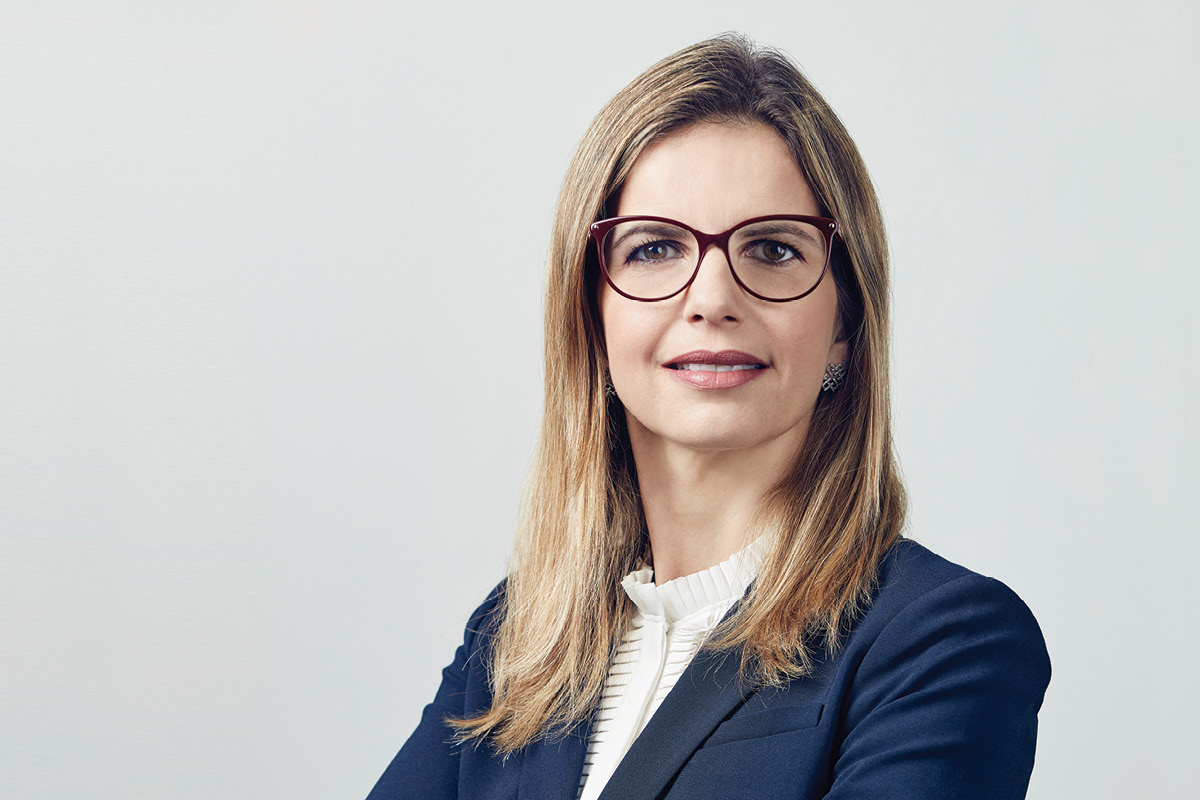Since The CEO Magazine last spoke with Leticia Gonçalves almost two years ago, she has continued to shape Monsanto Europe with a ‘one vision, one culture’ approach. Monsanto is a world leader committed to creating a range of agricultural solutions to nourish our growing population.
The company produces seeds for row crops such as corn, soybean and cotton, as well as more than 2,000 vegetable seed varieties that help farmers have better harvests while using water and other crucial resources more sustainably.
Leticia Goncalves unifies the vision & culture at Monsanto
After joining Monsanto in 1997, Leticia held several US and international management positions before becoming president for Europe in 2014. “Over the past few years, I have transformed the vision and culture of the region from separate countries to one vision and one culture with multiple sites,” says Leticia.
From the early 2000s to today, Monsanto has emerged as a leading agricultural technology company. It is committed to helping farmers to grow crops more sustainably by using more-efficient production methods, while conserving natural resources and reducing carbon emissions. The company collaborates with farmers, researchers, universities, not-for-profit organisations, and other partners to help tackle some of the world’s greatest challenges.
There are approximately 170 million hectares of field crops in Europe, with more than 80% of these growing wheat or barley, areas not yet covered by Monsanto. “Europe’s agriculture industry presents a tremendous opportunity,” says Leticia.
“We will continue to drive growth in our mainstream business while also looking for new opportunities. We are an innovative company with a collaborative approach. I’m driving the vision of a pan-European business while still respecting the individuality of each customer and the cultural differences of each country,” says Leticia, adding that Monsanto Europe has two new offices in Amsterdam and Budapest acting as regional hubs, instead of being on a country-by-country basis.
“We are modernising our operations to work cross-functionally and pan-regionally. We are redefining our strategies, tools and systems in the region, and leveraging knowledge and skills across every function.”
Overcoming challenges & harnessing opportunities
Leticia has overcome personal and professional challenges in her role as president. “Being a female leader in the male-dominated agriculture industry has presented an obvious challenge. Agriculture is very ‘macho’,” she says, and as such Monsanto is “focusing on leadership, personal development, and leveraging inclusiveness as one of our key competencies.”

Being a female leader in the male-dominated agriculture industry has presented an obvious challenge.
Under Leticia’s leadership, Monsanto has expanded from selling products and moved to an integrated-solutions approach by helping farmers with the best risk management practices. “Our mentality is not just selling, but bringing sustainable solutions to farmers in a more holistic way,” she says.
When it comes to further expansion, digital agriculture in Europe is the second-largest upcoming market in the world, and Monsanto Europe is positioned for success. “Digital technology has the power to revolutionise the way farmers do their jobs. There is huge diversity in crop production systems in Europe, and we plan to use digital agriculture to branch out into other areas,” explains Leticia.
“Partnerships are an important part of our future strategy. No single company can bring the entire solution for sustainable agriculture – it needs to be done together. We have longstanding relationships with strategic partners in our community, with a strong focus on those that are pan-European.”
Monsanto embraces the digitisation of agriculture
Monsanto Europe’s investment strategy includes a €500-million, decade-long expansion of production capacity in several European countries to meet high regional and global customer demand.
In 2013, Monsanto acquired The Climate Corporation, a San Francisco-based start-up focused on weather monitoring and providing agronomic advice for farmers. Monsanto also acquired Estonian company VitalFields in 2016, and HydroBio in 2017, a US software company, to expand upon its digital farming capabilities in Europe.
“Further, we have launched AquaTEK, a water-irrigation management solution we developed in partnership with the University of Milan. We expanded into Spain, Italy and Portugal in 2017, with plans to move into other European countries this year,” says Leticia.
The digital application uses satellite imagery and weather forecasting to provide farmers with a more holistic water-management tool. “Farmers make 40 agronomic decisions each year, and now all the information they need is at their fingertips. This app allows them to make decisions in real time and increase efficiency,” says Leticia.
“The digitisation of agriculture is happening now and we are taking the lead with our digital offering and many exciting tools yet to come.”
Increasing food security & improving sustainability
By 2050, the planet’s population is estimated to grow from seven to nine billion, while the area of farmable land is expected to shrink. “This means we’ll need to produce more with less,” says Leticia.
“This year alone saw an expansion of our offering in biological seed applied solutions in Europe. Monsanto has partnered with Denmark-based biotechnology leader Novozymes to form The BioAg Alliance, focused on developing new microbial solutions to transform agriculture.”
These microbial and biological solutions can be successfully used to replace traditional fertilisers, and applied in industries ranging from personal health care to food processing. “We truly believe that the Alliance will accelerate innovation, optimise integrated solutions, and extend benefits to new crops and geographies, and that’s an exciting future I want to be part of,” says Leticia.
“I’m passionate about diversity and inclusion, so I’m looking forward to the combination of talents, knowledge and expertise. Both companies share a commitment to producing more with less, increasing food security and improving sustainability.”
Monsanto is actively promoting climate-smart agriculture, which benefits farmers while significantly reducing greenhouse gas emissions and advancing agronomic practices.
“Monsanto has pledged to make its whole operation carbon neutral by 2021. We are also making 50% more food available while halving our landfill emissions from commercial agriculture by 2030,” says Leticia.
“At the end of the day, it’s about more than just business. I truly believe we are in an exciting time in agriculture and Monsanto is in a great position to be farmers’ partner of choice, as well as an innovative global leader in integrated digital agriculture solutions.”



